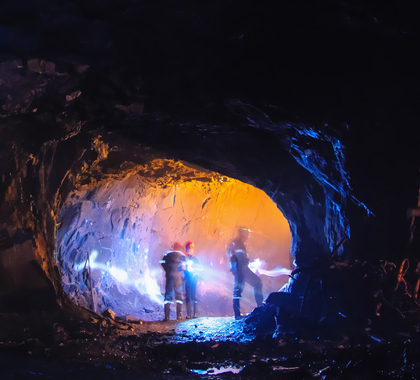As discussed last week, the Climate Socialists in the US Democratic Party ultimate objective appears to be to replace capitalism by socialism. It is clear, however, that Socialism has a dismal record both in leading to environmental problems and in inadequate development and use of sensitive but highly productive new techniques. The environmental records of Soviet communism and Cuba are about as dismal as one can find. Socialism is simply not very good at safeguarding the environment.
So since the Climate Socialists claim extreme concern for the environment to the point of emphasizing a non-problem (climate change) as a reason to overthrow capitalism, they either do not understand the dismal experience or deliberately ignore it. The result is that the Climate Socialists are advocating that environmental problems be “solved” by switching to a system that will end up being worse for the environment and for economic progress. Whatever advantages socialism may offer, environmental protection is certainly not one of them nor is timely development and use of improved production techniques.
The Importance of Property Rights
Consider the case of property rights. They are important in capitalism and minor or missing under socialism. Under capitalism some property rights systems include rights to subsurface minerals. In general, the US has them and Europe does not. This seemingly minor difference has generally allowed fracking to flourish in the US and flounder in Europe.
The result is that the US is now the dominant world producer of oil and natural gas while much of Europe is playing a smaller and smaller role. Similarly for environmental impacts of resource decisions, the Soviet Union had a dismal environmental recordwhile the US has done very well. The reason is that many oil and gas resources are privately owned and the owners can object or sue polluters in many cases. Under Socialism these decisions are much more often made by governments with little opposition from private groups since no one has a personal ownership stake in the outcome.
The reason for this is that Capitalism provides some protections for property rights and usually allows people to use their property to make profits regardless of what current popular beliefs may hold. Under capitalism, property rights give someone a reason to object if their property rights are infringed. As a result, if someone is polluting the air over someone else’s property they are likely to object and try to do something about it.The history of the destruction of the Aral Sea is an example of such pollution in a Socialist country; the history of the development of fracking in recent years is an illustration of productive adoption of new technology in a Capitalist country. The development of fracking as the basis for a new US dominance in oil and natural gas production was made possible by private subsurface property rights in most of the US, particularly in the red states. The lack of such rights in many countries in Western Europe explains why fracking has been ignored in such countries and in some blue states that have effectively outlawed it.
What the Climate Socialists are proposing is government intervention in the market that will reduce incentives to adopt new technology that increases productivity and incentives to avoid environmental degradation. I cannot think of a better way to make the world worse off. Yet the climate socialists claim they are environmentalists. It is important for voters to understand this. We need both a good environment and a prosperous economy.
[Originally Published at Carlin Economics and Science]





